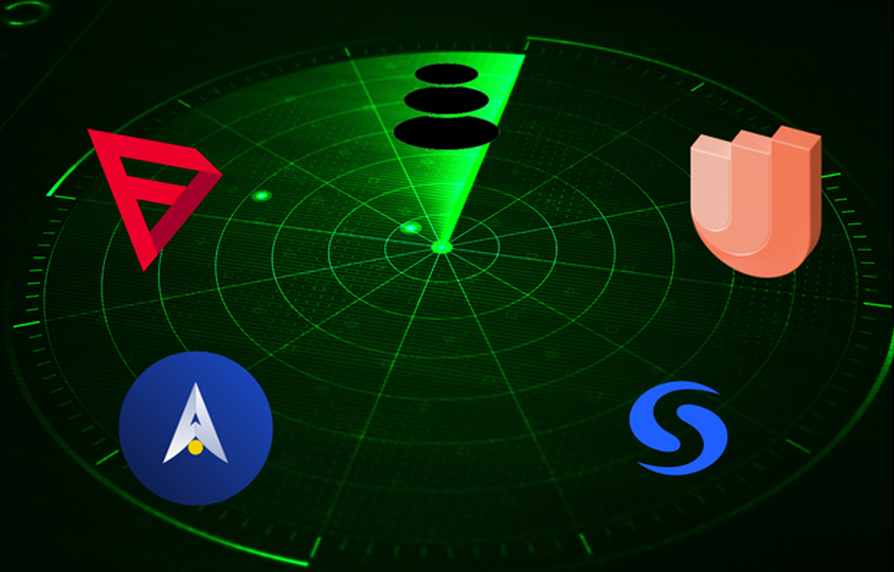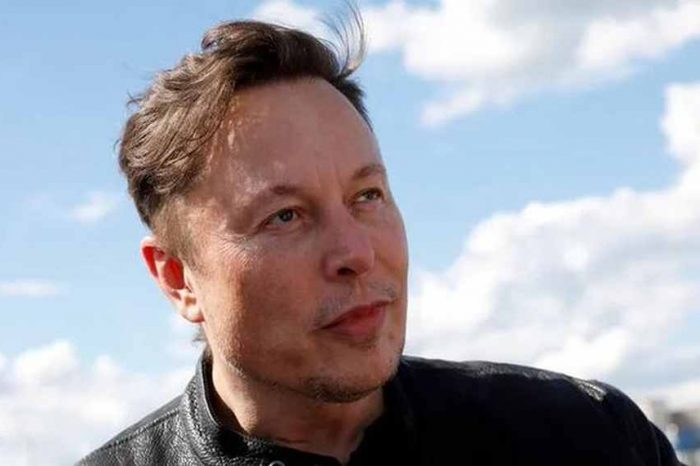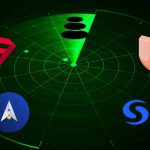These 5 DAOs Should Be On Your Radar

Over the last year, we’ve seen DAOs emerge from the crypto fad into the mainstream consciousness. Not only are they growing in number, but they’re also raising more money and they’re expanding into many new areas.
DAOs are decentralized autonomous organizations built on blockchains that offer an alternative to the traditional, centralized leadership structure that’s implemented by most entities today. They’re run entirely by their communities, which come together to pursue a common goal. Some of the simplest DAOs are simply a group of like-minded individuals seeking to pool their resources to buy a piece of artwork, while others have far more complex goals.
One habitual feature of every DAO is the governance token, which grants the holder the right to make proposals to the DAO and then vote on them to decide which actions it will take next.
When DAOs first emerged they were mostly viewed as an interesting experiment in democratic governance and little more. But with their rapid rise, they’re already impacting mainstream culture in many ways, as can be seen in our list of five emerging DAOs to watch in 2022.
UpLift DAO
It’s not easy to become a crypto millionaire anymore. Some of the earliest investors in Bitcoin made millions, but nowadays it’s not easy to identify a token that’s likely to see its value increase by 10,000-times and go to the moon. The problem is that most tokens available on exchanges have already reached a price that means they’re unlikely to make such enormous gains. Meanwhile, crypto launchpads, which enable investors to purchase brand new cryptocurrencies before they’re listed, typically insist on users staking several thousand dollars worth of tokens prior to participating.
This is the dilemma that UpLift DAO believes it can solve. It’s a DAO-based launchpad with a difference – the difference being that anyone can join in the fun regardless of how much capital they have. It’s possible to get away with staking just 100 LIFT tokens (around $15) to take part in the early token sales of projects it backs, making it far more accessible to novice investors than similar platforms.
Like other launchpads, UpLift DAO carefully vets all of the crypto projects it backs, ensuring that not only is the technology sound but that the team leaders are real people with a clear vision about how they intend to bring their project to market. It also ensures the projects are tackling viable use cases too, so investors can be sure that each new token they acquire is legitimate.
What’s more, because it’s a DAO that’s led by a community of investors, UpLift DAO also strives to ensure the projects it launches have every chance of succeeding. So not only does it support the projects prior to their launch, but it continues to assist them afterward, providing access to its community, technical and marketing assistance and even introductions to venture capitalists when the time is right. So UpLift DAO’s crypto projects have everything they need to get their ideas off the ground.
UpLift DAO is targeting metaverse, GameFi, DEX, DeFi, and infrastructure projects and to date, it has already completed five launches and raised a total of over $1 million.
With so many enthusiastic investors in the crypto space just waiting for a chance to back some innovative new projects, the only way for UpLift DAO is up.
Balancer DAO
Balancer DAO is one of the primary DAOs involved in an emerging trend known as “treasury swaps” that sees DAOs take on a more active role in other crypto projects besides their own.
It’s the governing entity of Balancer, a popular AMM, DEX, and liquidity pool protocol and portfolio manager in the DeFi space. It’s popular because it spins the concept of an index fund – instead of paying fees to portfolio managers, users actually collect fees from traders.
Balancer DAO made headlines recently by trading some of its own governance tokens to take a position in other DAOs. Its first treasury swap was with Fei DAO, when the community voted in December to swap 200,000 BAL for an equal value of Fei’s two tokens – FEI, the stablecoin, and TRIBE, which is its governance token. As part of the deal, Fei DAO committed to depositing BAL into Balancer’s BAL-WETH liquidity pool. At the time, Balancer DAO said the transaction would allow it to lock up some of its treasury’s value in a stablecoin. It also has the option of earning yield via incentivized staking on Fei, if the community votes to do so.
BalancerDAO has also made treasury swaps with mStable and PrimeDAO. It recently swapped 20,000 BAL for an equal value of mStable’s MTA governance token, giving it a big say in mStable’s governance. It means Balancer DAO has a lot of influence on mStable, because the community first votes whether to back or reject a proposal and then votes on mStable’s proposals with the full weight of the MTA tokens it possesses.
Just as interesting is Balancer DAO’s swap with PrimeDAO, which is a project that has set out to establish DAO-to-DAO cooperation. PrimeDAO sought out the swap, saying that the deal would allow the two DAOs to share operational learnings and workflows. As part of the transaction, PrimeDAO acquired 25,000 BAL for an equal value of its PRIME tokens. Half of the BAL it acquired was immediately returned to Balancer DAO’s treasury so it can benefit from trading fees and BAL rewards.
Balancer DAO is one to watch to see how its strategy of diversifying its holdings plays out. The idea is to gain influence in other projects across the DeFi space so it can encourage them to move in a direction that benefits itself.
TRONDAO
One of the newest and yet also one of the most instantly recognizable DAOs, anyone who knows anything about crypto and blockchains will surely know what TRONDAO is about.
It is of course the official DAO of TRON, one of the best-known blockchains around. TRON launched in 2017 and its native token TRON has consistently been ranked among the top cryptocurrencies for years. It’s a key platform for DeFi, boasting more than $1.3 billion in total value locked.
TRONDAO was established to replace the TRON Foundation that previously governed TRON. With TRONDAO now up and running, it means TRON’s community now gets to participate in all of the decision-making – so everyone who has a stake in the project will be able to make sure their voice is heard.
The founders of TRON had always planned to eventually hand over governance to the community and they say that by doing so, it’ll provide a big boost in user engagement. It’ll be an interesting one to watch if only due to the size of TRON’s community – it boasts over 70 million unique TRON wallet addresses and 4,765 nodes.
TRONDAO has already made a big splash with the community voting on the winners of its recent Grand Hackathon, where developers and entrepreneurs competed against each other to try and build the most innovative new applications on the TRON blockchain. The community dished out prizes ranging from $10,000 up to $50,000 for the most impressive submissions in areas such as Web3, DeFi, GameF, and NFTs.
DAOSYS
Perhaps the most intriguing new DAO prospect this year is Syscoin’s newly created DAOSYS, which is described as an attempt to build an entirely new standard for decentralized autonomous organizations.
Syscoin is one of the oldest crypto projects around, launching back in 2014 via a Bitcoin fork. Like its predecessor, it’s designed to be a genuine currency that aims to remove the middleman from the world of finance and put money into the hands of consumers and merchants by allowing them to transact directly. To benefit from near-zero fee transactions, users can simply use Syscoin to pay for goods and services.
Syscoin is of the opinion that most DAOs have failed to live up to their promise. The problem, according to Syscoin Foundation President Jag Sidhu is that most DAOs retain control of their user’s funds and store them in a treasury that’s maintained by just a few individuals. He also believes that existing DAOs’ governance systems are incompatible with stakeholder values because they do not have direct control of the protocol they’re supposed to govern. Rather, they act as advisors to the multisig that controls the funds in the treasury.
Syscoin says DAOs should operate more like an Automated Market Maker, using a permissionless and autonomous protocol that allows anyone to consume its services. To that end, Syscoin says it has iterated on the AMM model so its treasury is more akin to a liquidity pool. It also applies “antifragile tokenomics” and integrates with DeFi protocols to enable treasury management without the need for a governance token and voting. Syscoin said the result is a risk-mitigating funding mechanism that shifts the primary risk of financing new projects towards the opportunity cost.
DAOSYS’s technology is known as the Autonomous Service Engine, and it has been published as a reference architecture for other DAOs that want to enable self-sovereign asset management on Syscoin’s blockchain.
Alpha Venture DAO
Alpha Venture DAO is the governing entity of Alpha Finance Lab, a project launched in 2020 that aims to drive innovation in DeFi. The result of those efforts is the Alpha Universe, which is an ecosystem of interoperable DeFi products that aim to help crypto investors earn richer rewards while minimizing their risk. Its flagship offering is Homora V2, the crypto sphere’s first leveraged yield farming platform. Other products include an NFT marketplace and standards.
As for Alpha Venture DAO, it’s a venture capital fund that uses a part of the profits generated by Alpha Universe to incubate up-and-coming Web3 projects that have the potential to boost its own ecosystem. The great thing about it is that Alpha’s 100,000 strong community will be able to offer its own expertise and skills to incubated projects. Alpha also has its own Alpha Network, which is a group of over 50 thought leaders, influences, investors, and crypto experts, to provide guidance for incubatees. Alpha’s venture partner Terraform Labs offers further expertise.
In return for their backing, Alpha Venture DAO members get to become part-owners of some of the most promising new projects in areas such as DeFi, GameFi, and NFTs.
Alpha Venture DAO has already done a lot of work, incubating Web3 projects such as GuildFi, pStake, and Beta Finance that have since gone on to obtain funding from top-tier venture capitalists and launch their own crypto tokens.

